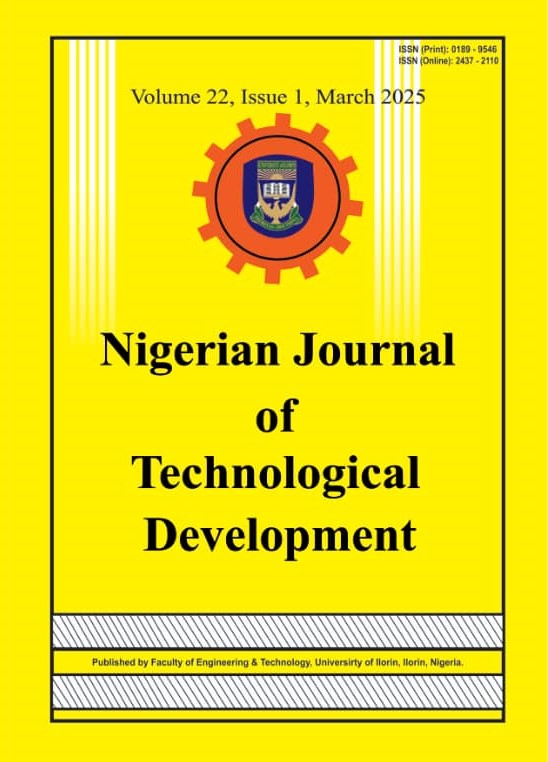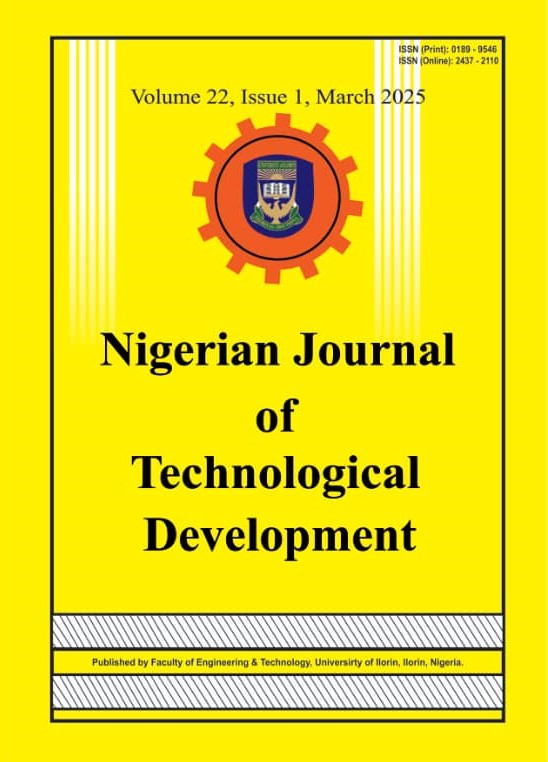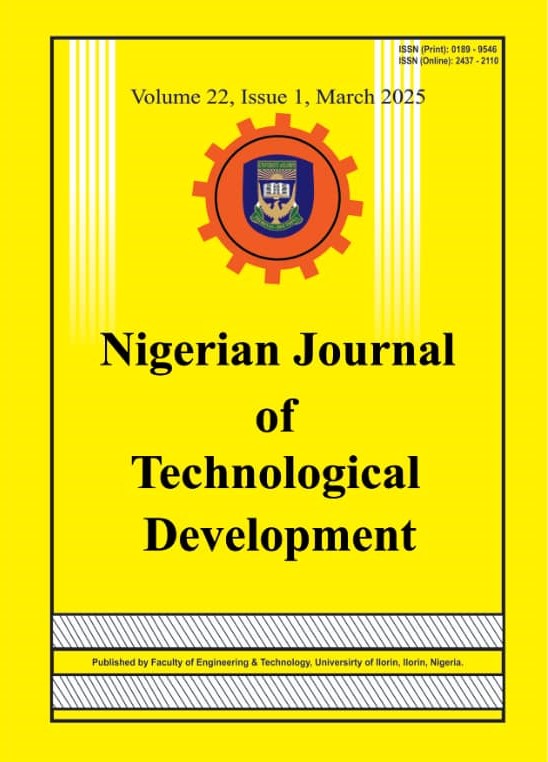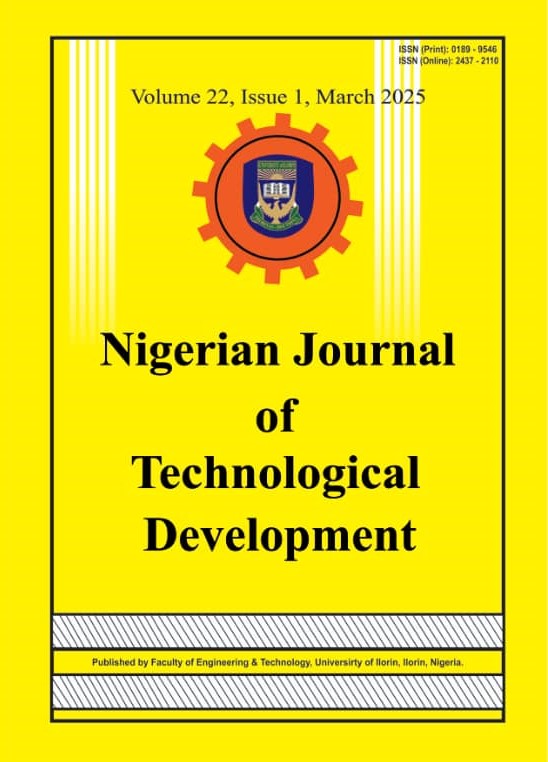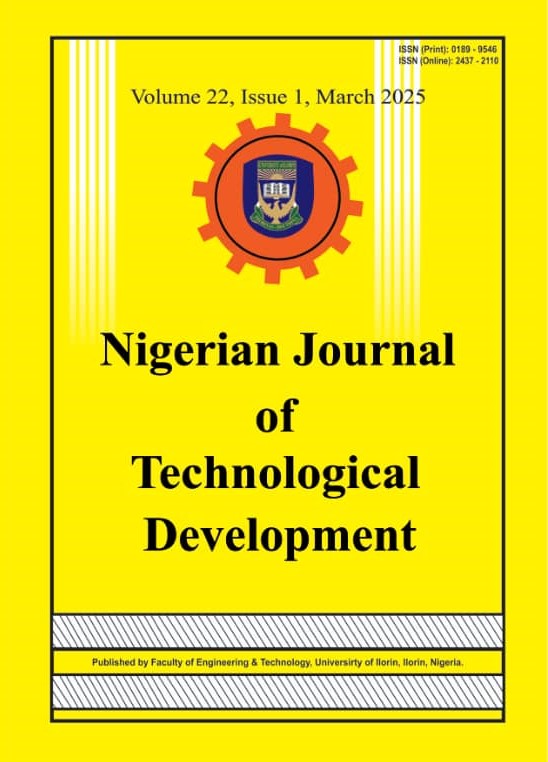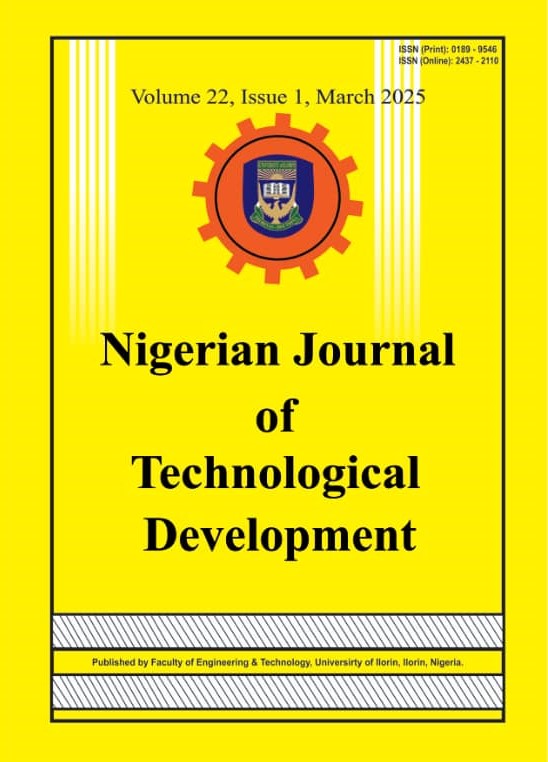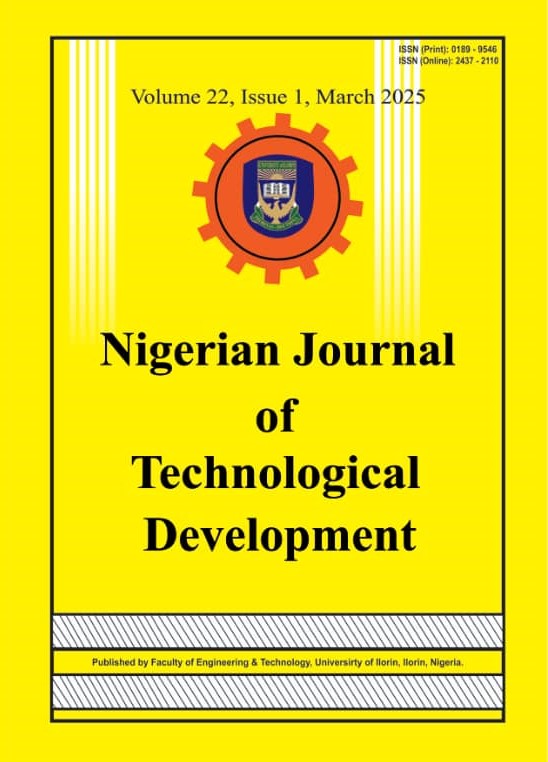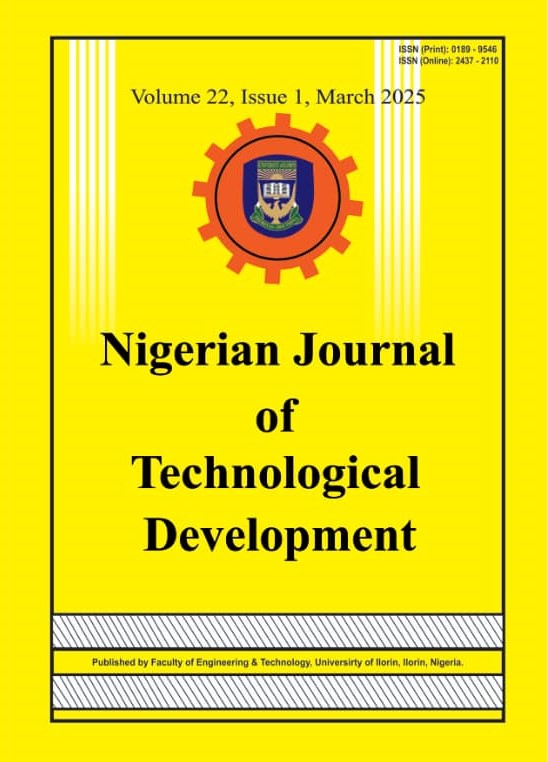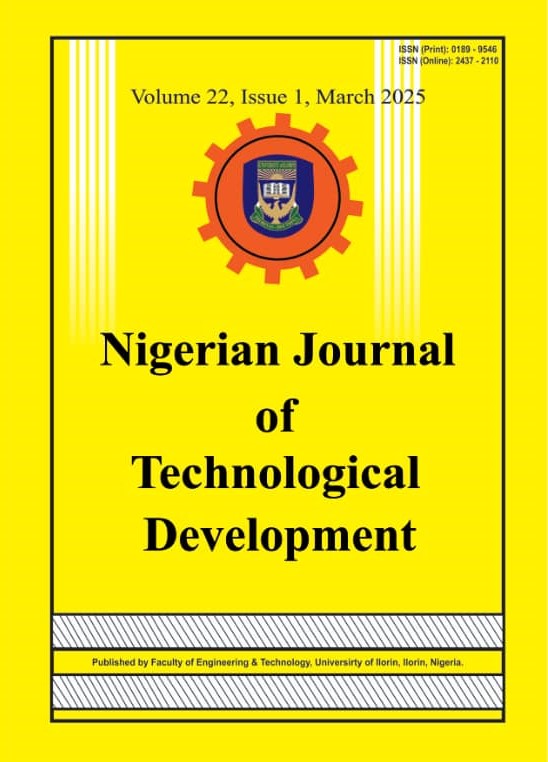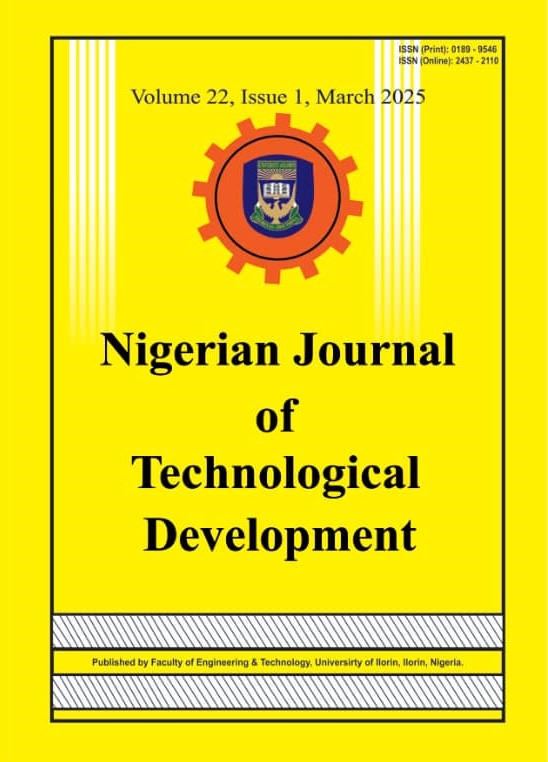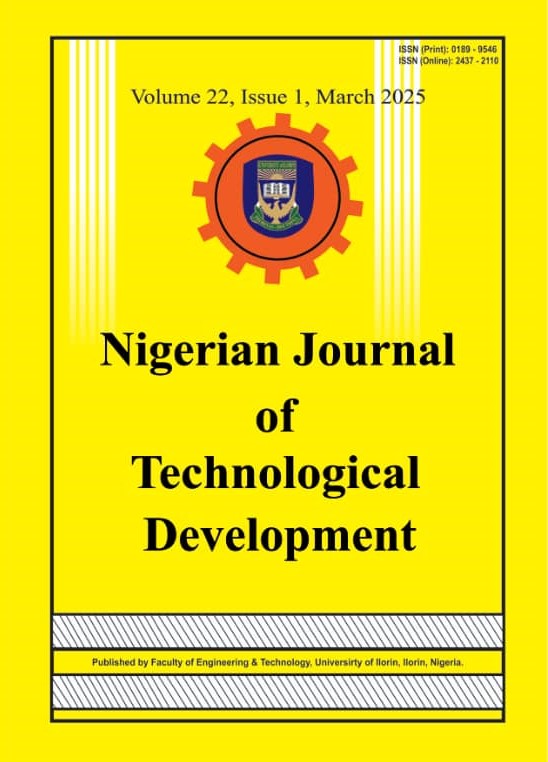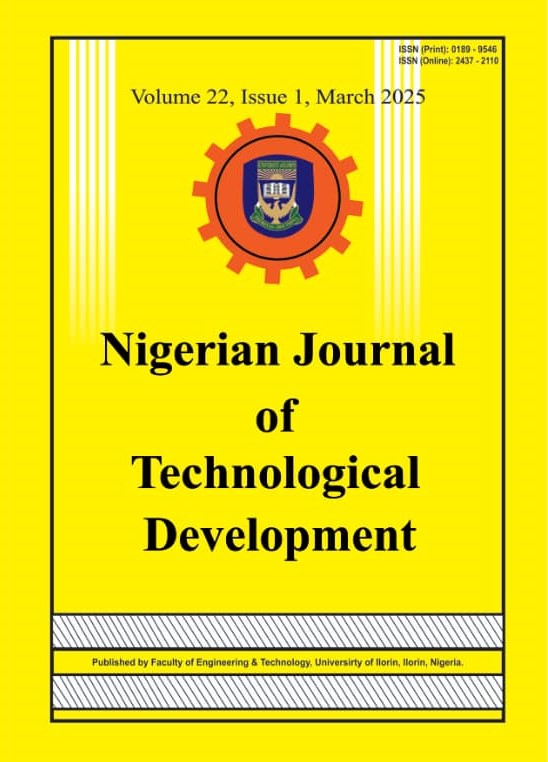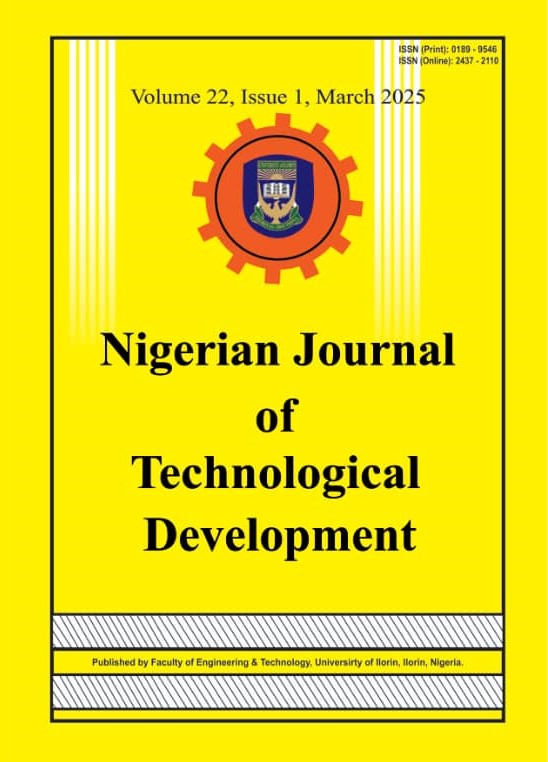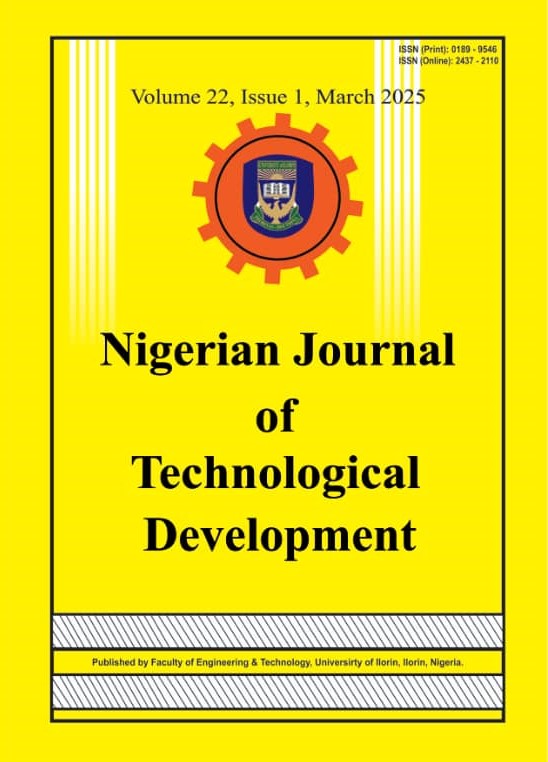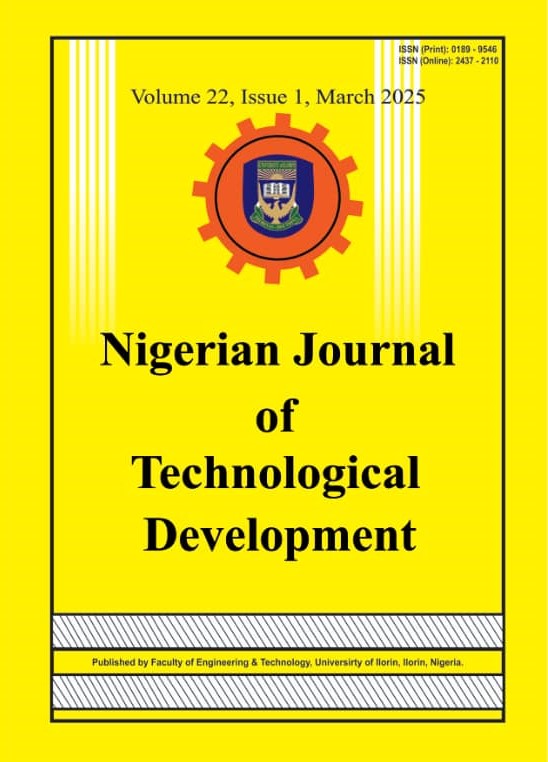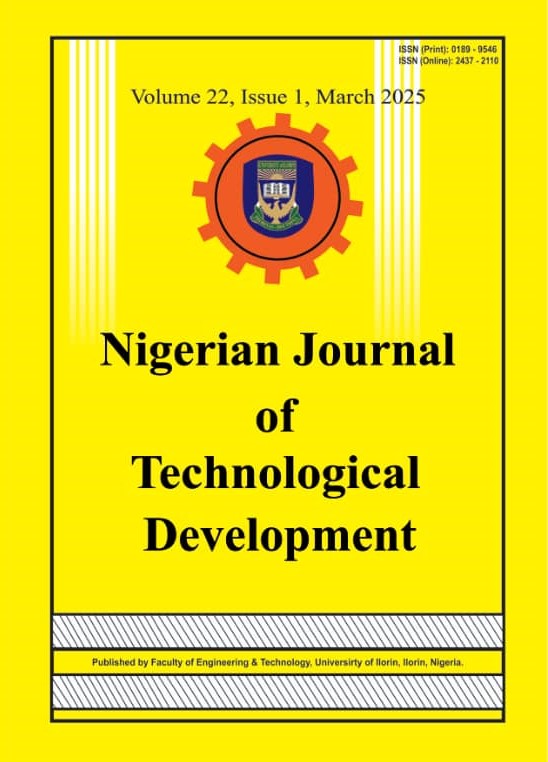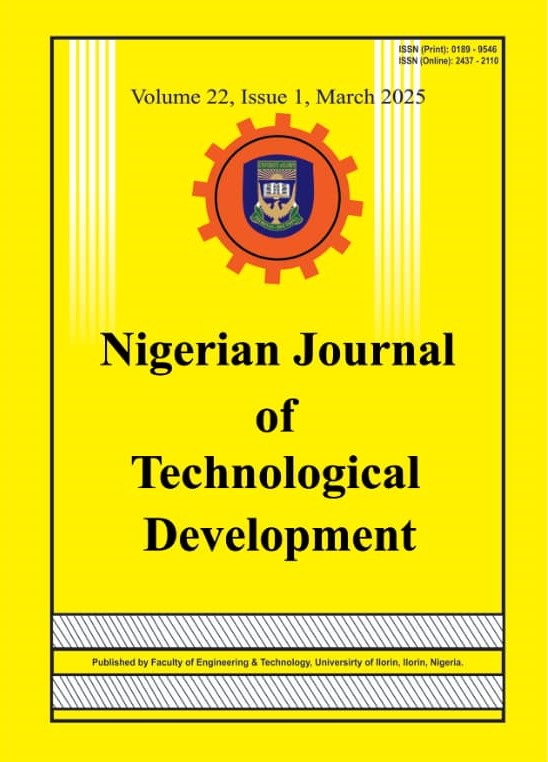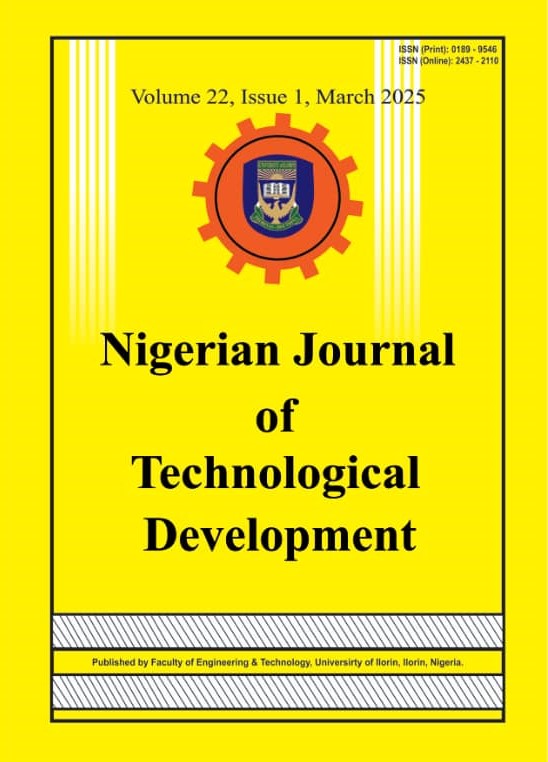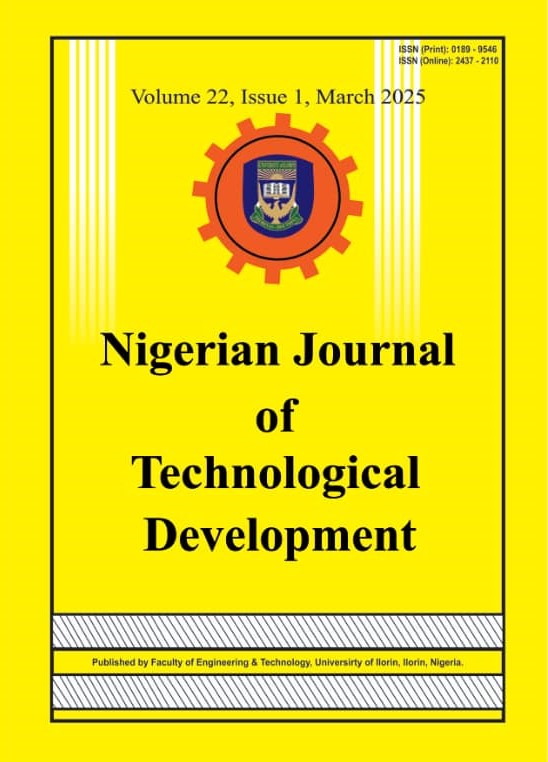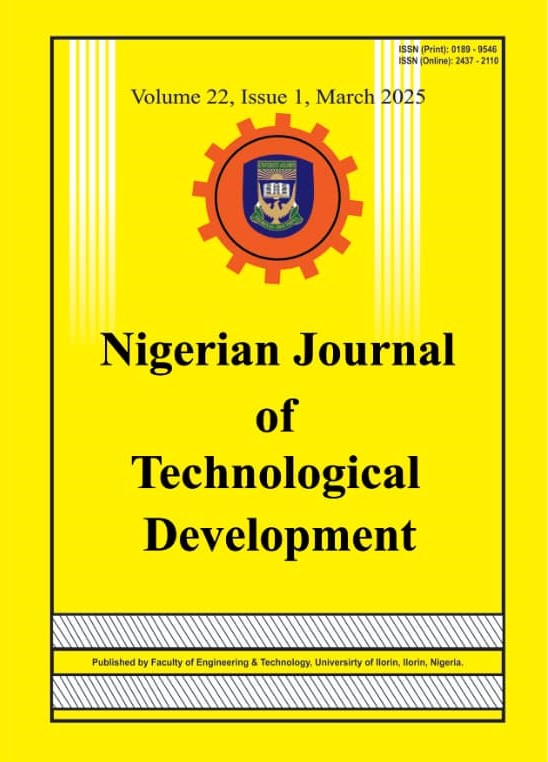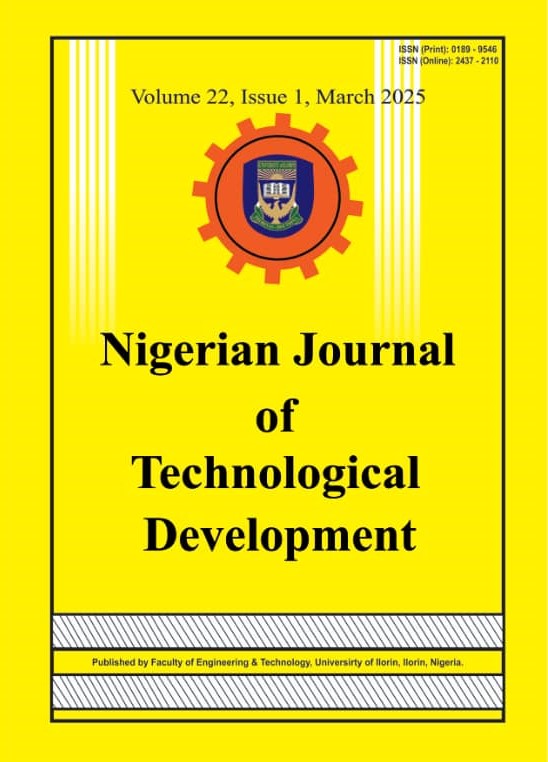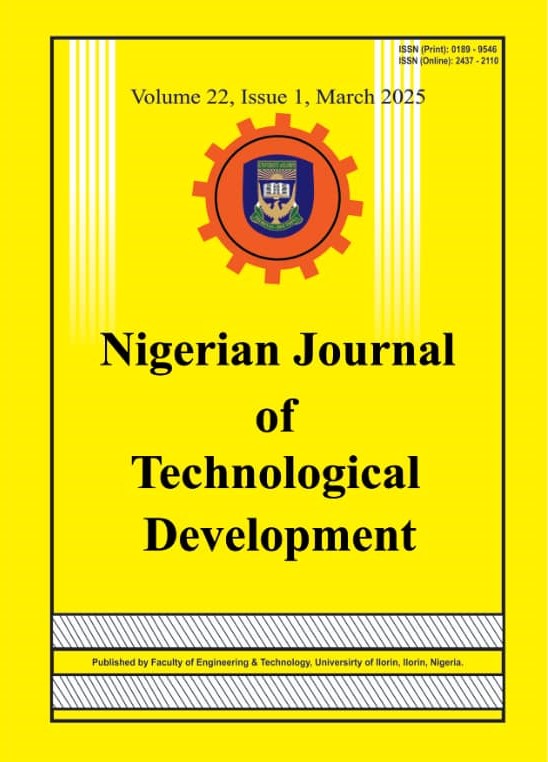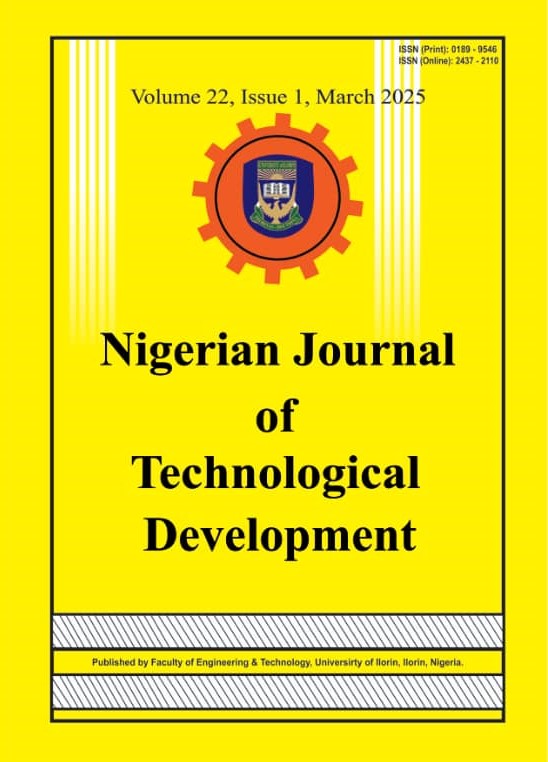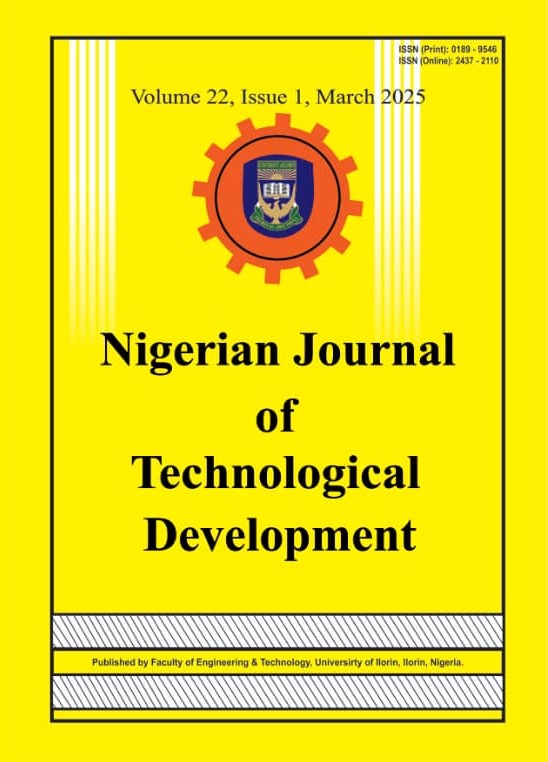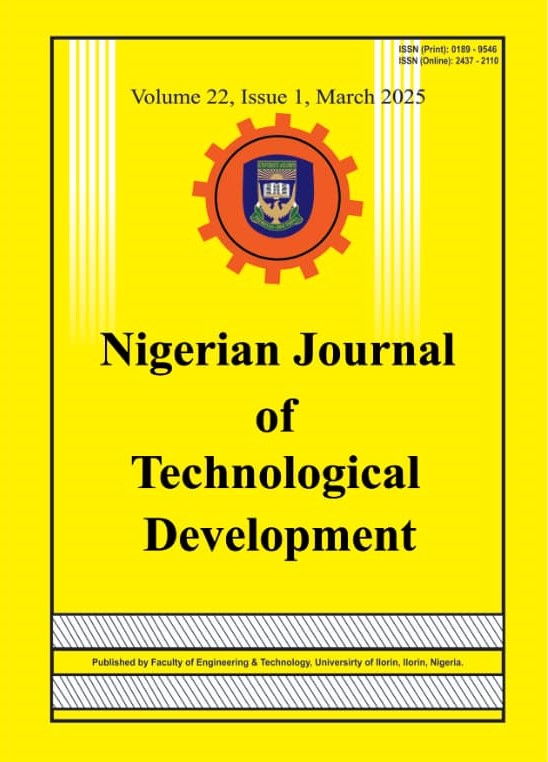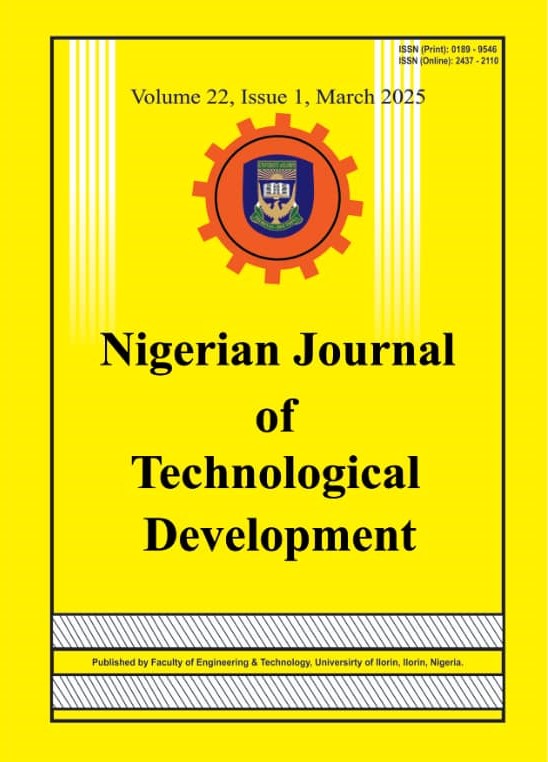Vol. 22 No. 1 (2025): Vol. 22, Issue 1, March 2025

This issue (v22, i1, 2025) of the Nigerian Journal of Technological Development (NJTD) is highly enriched with contributions from a wide field of research covering engineering, technology, environmental sciences, and computational modelling. Many of the studies focus on materials science and sustainable energy solutions, with some of the articles exploring the preparation and characterisation of novel materials such as gold nanoparticle-based corrosion inhibitors, magnesium oxide-doped hydroxyapatite, and tensile-strengthened stainless-steel mesh. With respect to energy, this issue contains the optimisation of biodiesel production from waste sources, including how used vegetable oil and ram fat, demonstrate innovative approaches to renewable energy development. The studies on tribological analysis of recycled vegetable oil-based lubricants and process optimisation in food-based energy applications, such as dehulling African breadfruit seeds, further highlight the issue’s focus on sustainability. Additionally, this issue also discusses how computational and numerical analyses contribute to fields such as Couette-Poiseuille flow simulations, higher-order sliding mode control in power networks, and structural dynamics of Rayleigh beams.
This issue also features advancements in biomedical engineering, environmental monitoring, and artificial intelligence. The development of metamaterial-based biosensors and feature selection techniques for high-dimensional data analysis underscores the growing role of machine learning in medical and engineering applications. Research on efficient adsorption methods for wastewater treatment, flood hazard assessment, and ICT infrastructure development for Nigerian universities collectively reflect a commitment to environmental and technological progress. Meanwhile, mechanical engineering studies in wire-arc additive manufacturing, suspension system modelling, and investment casting design improvements contribute to industrial innovation. The integration of experimental research, computational methods, and real-world applications across these disciplines provides a valuable resource for academics, industry professionals, and policymakers striving to advance scientific and technological frontiers.

